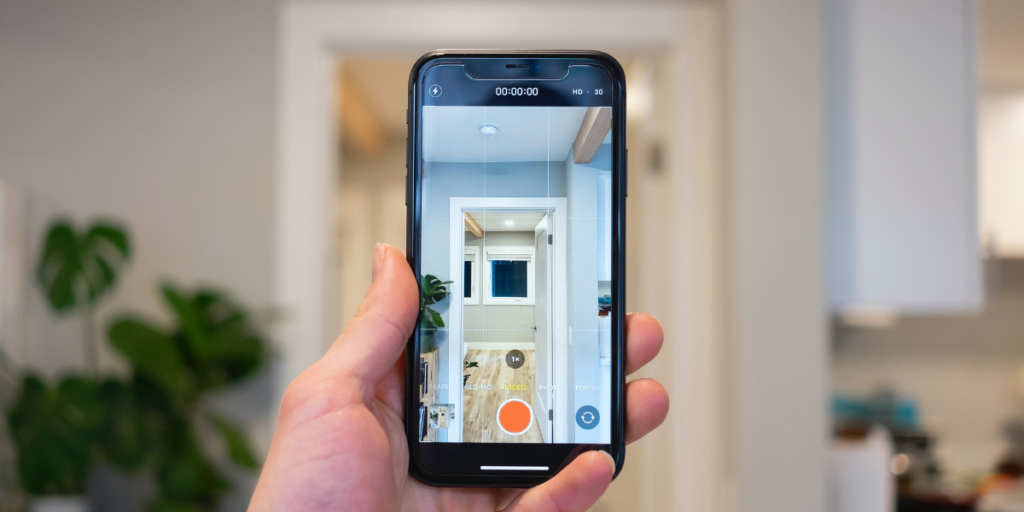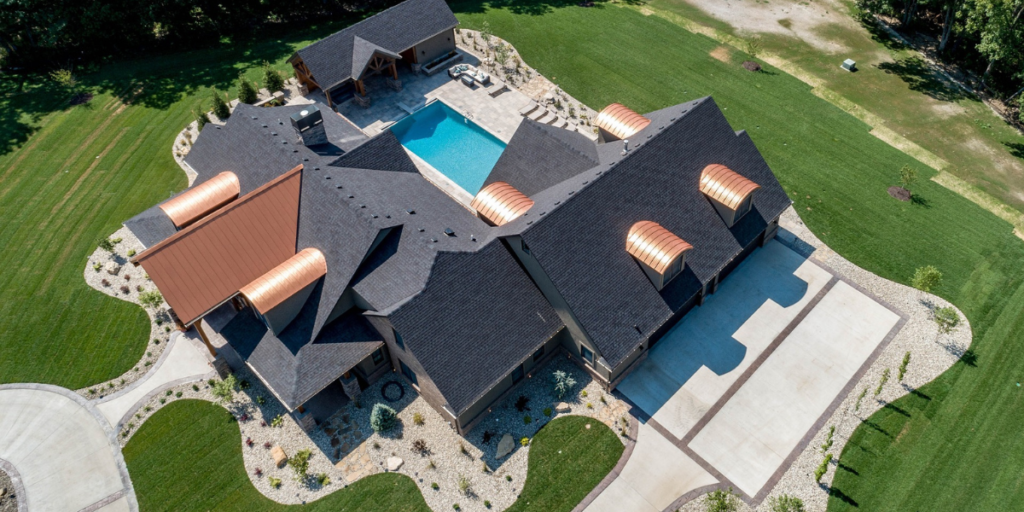Real estate continues to expand and innovate experimental technologies into transaction processes in order to improve customer experiences. Since 2022, real estate technology trends have soared to new heights, creating digital codes and services to streamline and quicken title exchanges through remote closings. With so many processes, though, it can be hard to find the best trends to integrate for your agency. Together, let’s review some upcoming real estate technology trends in 2023 that can benefit both real estate professionals and clients alike.
Which Title Insurance Policy is Right for You? Learn More With This Chart
Real Estate Technology Trends to Watch
Videos
One of the more popular of real estate technology trends appears to be video property tours. From YouTube and Facebook to Instagram and TikTok, realtors are finding a majority of clients by displaying home interiors in digital walkthroughs. In this manner, remote buyers can view all features of the property before committing and moving out, thus providing a more comfortable and secure experience. In addition to live viewing, potential buyers can also find real estate videos featuring timelapse on construction, wherein they can see previous renovations and length of the remodel online. With this feature, buyers can better appreciate the property’s value before they buy, ensuring the quality of their home is worth investing in. Immersive, engaging and fun, videos will enhance the real estate industry by visually enticing buyers to homes wherever you list.

Video tours allow buyers to tour remotely which is convenient for those who cannot visit in person.
Virtual Reality (VR)
People often associate virtual reality with video games; however, as real estate technology trends adapt, so too has the real estate industry grown to include virtual reality tours of homes for buyers. Yet, this isn’t limited to just inside the home. Thanks to VR imaging and sophisticated videography, potential buyers can now explore outside the home for a full inspection of the acreage. Google 360 services already offer such views to major businesses, and now realtors can invite homeowners to view properties from anywhere at any time with augmented virtual reality from their websites. If that wasn’t amazing enough, real estate websites also feature virtual staging options! Before real estate agents would stock a home with rented furniture to display the home; today, virtual reality technology can simulate custom furniture, wall colors, and flooring renovations to buyers according to their preferences. Rather than having to imagine their home design, buyers can visually lay out remodeling ideas on screen. Current real estate technology trends predict 50% of home sales in 2023 will occur via VR tours and staging, so its important agencies start implementing such features now.
Drones
Real estate technology trends of 2023 are using drones to feature home properties and surrounding highlights to buyers. Using the drone’s built-in camera lenses, real estate agencies can take 360° photos and videos to show properties from above, highlighting the full beauty of the home as well as the surrounding landscape. Since drones aren’t indoor friendly, most exterior images highlight the property exterior and amenities within the area to buyers, giving them an idea of what schools, shops, businesses, and natural landscapes to look forward to upon moving. After years of utility on the market, drones have become a much cheaper and more convenient tool to display real estate properties to buyers, saving realtors time and money from using a photographer.

Drone photography captures the entire property for the potential buyer to see.
Social Media
Realtors can count on social media to be a constant, reliable type of real estate technology trend to reach homebuyers. Facebook, Twitter, Pinterest, and even LinkedIn ads are a popular means to advertise real estate properties to homeowners and businesses. Each channel not only raises awareness across various buyers, but helps to list home prices, layout features, amenities, and other characteristics. Some platforms even allow buyers to bid on properties like a market auction, guaranteeing closings in no time.
Blockchain and NFTs
Of the lesser-known real estate technology trends for 2023, few know the growing reliance on blockchain and NFT technology to secure real estate transactions. Mostly used in cryptocurrency, blockchain serves as a digital ledger to track transactions and activity across a network, stored in coded “blocks” that connect and store information. As real estate companies move into 2023, many lean on blockchain technology to store vast amounts of data on properties from titles, payments, client information, and much more. Due to its complex design, real estate blockchain transactions are quite secure, nearly eliminating title insurance or transaction fraud risks while also limiting disputes from its contractual transparency. Fast, efficient, and secure, blockchain presents an easier means to close transactions between parties; in that same vein, though, real estate technology moves towards blockchain’s NFT utility, too. While blockchain eases the transaction process between parties, NFTs—non-fungible tokens—create a means for clients to track, manage, and exchange their title property deeds through unique digital tokens too complicated to clone. Blockchain NFTs allow realtors to complete real estate remote closings entirely online.
Data Analytics
Data analytics continue into 2023’s top real estate technology trends for helping to keep real estate agencies and properties relevant within the fluctuating housing marketing. A strong source for buyer activity and property data, data analytics help realtors to identify sale opportunities, create personalized marketing campaigns for their audience, and determine price ranges within their covered area. Moving into 2023, real estate technology hopes to include AI predictive software into data analytics, which will allow agencies to market and adapt their business strategies according to market trends and buyer behaviors online.

Analytics provide insight into data that can be used to forecast future opportunities.
eSignatures
Most agencies have moved to the real estate technology trend of eSignatures, going into exclusively digital contracts. Incorporated with other digital contract trends, eSignatures automate legal closings with simple digital markers for clients. In turn, real estate companies will save a great deal by cutting down on paper documents, and thus streamlining the sale transaction and official title exchange within seconds.
ID Authentication
One of the newer real estate technology trends coming of 2023 are identification tools. Individuals who have a smart phone or computer may have unlocked their devices via fingerprint or facial recognition scanning; well, the same technology seems to be growing in popularity with realtors and buyers. For customers remotely closing on a property on their phone, computer or tablet, identity authentication technology goes a step further to ensure security from title record and payment fraud between parties. In short, scanning technology enables buyers to access important digital data from realtors without the frustration of security codes and questions impeding the process.
Revolutionize Your Real Estate Experience with Millennial Title
Millennial Title offers a variety of new, innovative tools that will carry real estate technology trends into 2023 and beyond. From blockchain smart contracts to crypto closings, rely on Millennial Title’s team of real estate professionals to securely close the property you need with our sister company, Millennial Blockchain. Contact us today to learn more about our MillennialNFT and Blockchain solutions.



